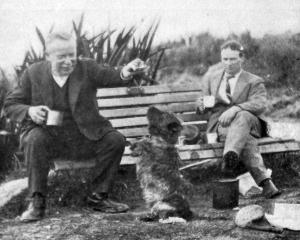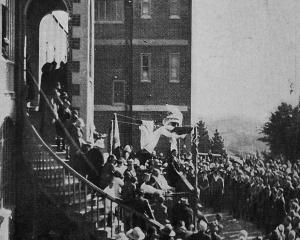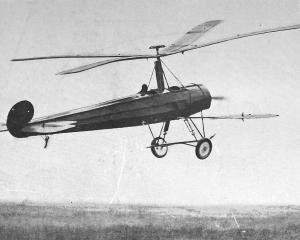The seed on the lower levels has been sacrificed owing to the great scarcity of grazing, and even where cattle have not been turned into it, there is very little seed showing. In some localities, however, the seed gives better promise, and it would be wrong to say this year's crop is a total failure. Some of the higher paddocks are looking remarkably well, considering the season, though, of course, the grass is stunted owing to the lack of moisture.
Taken as a whole, however, an optimistic estimate of this year's crop would be 10,000 sacks, compared to the usual 80,000 of an average good year. A few days of rain would do much to improve the seed, which is now maturing in the husk. Autumn rains would also improve the paddocks wonderfully for grazing purposes in the winter, as there is very little bottom in most of the paddocks this year. The seed this year is very free from extraneous grasses and weeds, and a very clean sample should be harvested.
The price of cocksfoot this year, also, promises to be exceedingly good, as it is almost certain that none will be shipped from Denmark, as its crop will be required in Europe. A line of 500 sacks of last year's crop was sold a few days ago for 9 3/4d, the weight being in the region of 12lb.
Latest of recent cases of disorderly outbreaks by mobs of soldiers is something which took place at Perth a few days ago. Backed up by larrikins, the soldiers engaged in disorderly marches through the city, made a great deal of noise, and smashed the windows of six business places kept by persons of foreign nationality or name.
In one case looting was added to smashing. Portion of the contents of a tobacconist's shop was carried off and distributed amongst the rioters. The military and civil police seemed powerless to arrest the course of the disturbance, which lasted for hours. When the police made attempts to keep the rioters back by physical obstruction they were attacked with pickets wrenched from neighbouring fences.
It can happily be said that only a very small proportion of the thousands of soldiers in our camps takes part in such unseemly proceedings. It is nevertheless regrettable that such things happen at all, especially as the injury caused falls to a large extent upon persons whom not even the wreckers would wish to hurt. Lieutenant-colonel M'Cay, the new Inspector-general of the Australian Forces, seems to have set his face strongly against unworthy conduct on the part of our soldiery. There is talk of several important changes in commands, with the object of ensuring proper discipline in and out of the military camps, and the avoidance of happenings likely to impair public admiration for our volunteers.
The slackness of country constables in regard to sheeting home cases of cruelty to animals was commented on at Tuesday night's meeting of the Society for the Prevention of Cruelty to Animals at Christchurch (says the Press).
Redress or prevention occurred only when the secretary or an officer of the society visited a country district, when the local constable at once gave warning or took action. It was decided that the Inspector of Police be written to drawing his attention to the fact that cases of cruelty generally came to light only after such visits, and asking him if independent action could not be taken.
ODT, 14.1.1916.












